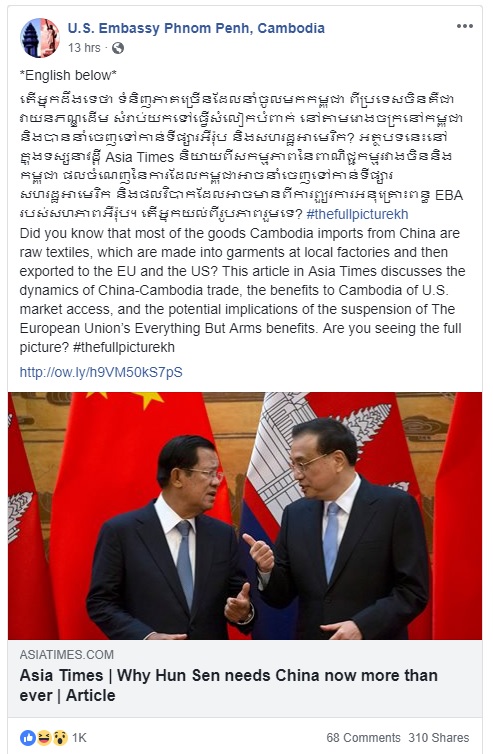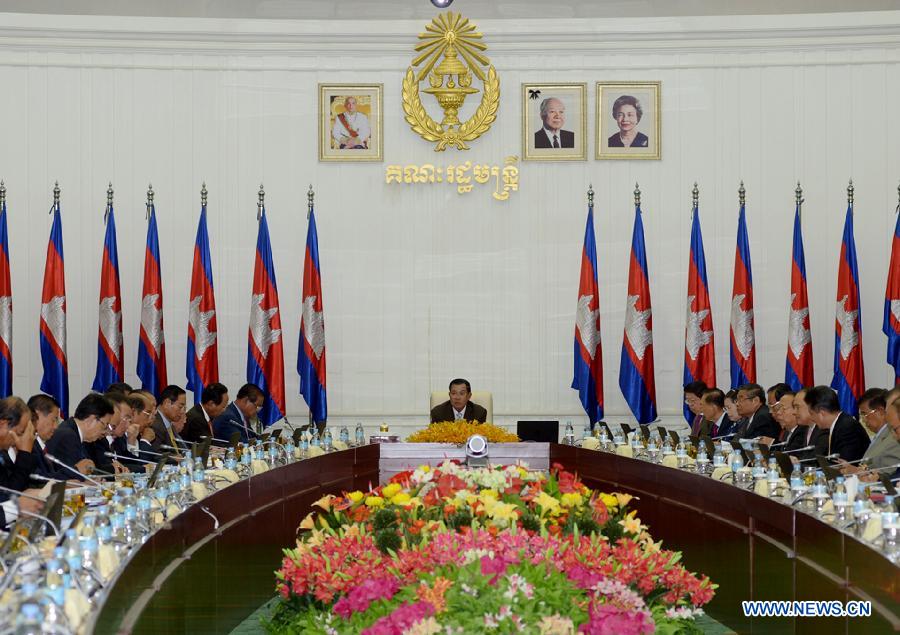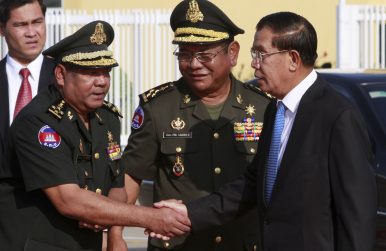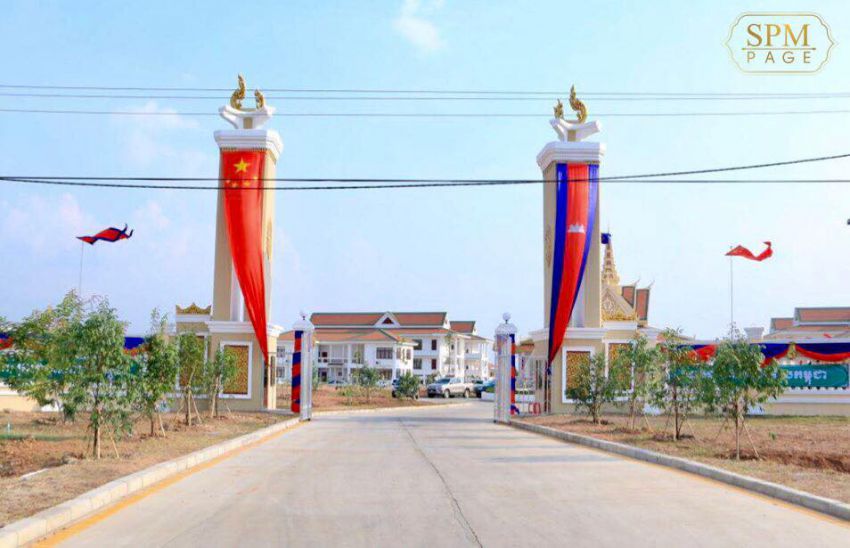US, China Face Off Over Legacy in Cambodia
“China supported the Khmer Rouge during the 1970-1975 war and was the sole critical supporter throughout the 1975-1979 Democratic Kampuchea period of genocide. With Chinese money and support, Pol Pot carried out the period of murder, starvation and brutality.” – Said Elizabeth Beckerចិនគាំទ្រខ្មែរក្រហមក្នុងកំឡុងសង្គ្រាមឆ្នាំ១៩៧០-១៩៧៥ ហើយជាអ្នកគាំទ្រសំខាន់តែមួយគត់ក្នុងរវាងឆ្នាំ១៩៧៥-១៩៧៩នៃរបបប្រលៃពូជសាសន៌កម្ពុជាប្រជាធិបតេយ្យ។ ជាមួយថវិការនិងការគាំទ្ររបស់ចិន ប៉ុល-ពតប្រតិបត្តិការវាលពិឃាត ទុរភិកអត់ឃ្លាន និងឃោរឃៅព្រៃផ្សៃ។ – ដោយអេលីសាបុិត បែកខើរ
Op-Ed: VOA Khmer
February 09, 2019 10:40 PM
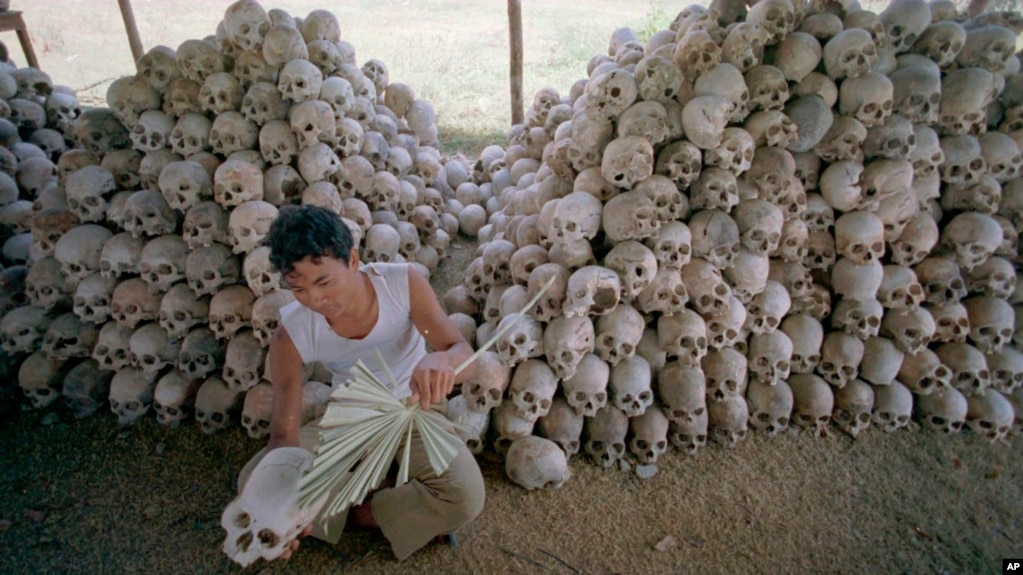
PHNOM PENH, CAMBODIA —
Almost half a century ago, the U.S.-backed Gen. Lon Nol led a coup in March 1970, overthrowing Cambodia’s King Norodom Sihanouk while the monarch visited Moscow.
Sihanouk took refuge in Beijing until 1975, when brutal Khmer Rouge guerrillas leading a resistance movement against Lon Nol’s Khmer Republic captured Phnom Penh on April 17 and took over the country.
Sihanouk initially supported the Khmer Rouge regime and was installed as head of state by the communists but resigned in 1976. He spent the rest of the regime as a de facto prisoner of the Khmer Rouge, which wreaked havoc on the country, killing or starving to death an estimated 1.7 million people from 1975 to 1979.
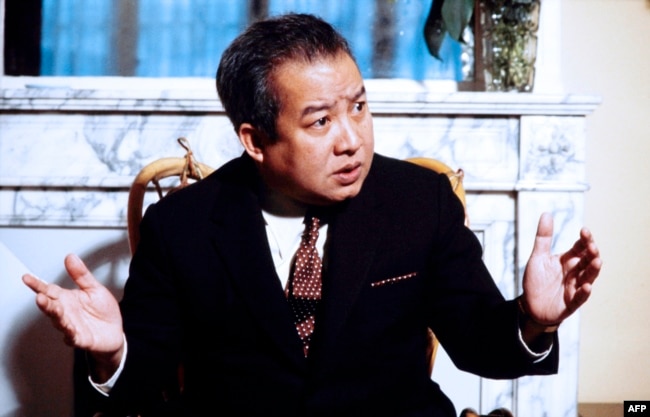
Echoes of the Cold War
Today, that sequence of events reverberates in a diplomatic face-off in Phnom Penh that echoes the Cold War even as it has gone viral in Cambodia. The online skirmish began when the U.S. Embassy posted a statement on its Facebook page, Jan. 30, saying the Khmer Rouge “ignorantly depended on a superpower,” an apparent reference to China. The embassy later issued comments claiming Washington was not involved in the coup led by Lon Nol that ousted Sihanouk.
“Instead, there is a lot of evidence showing that [the] Chinese government actively supported [the] Khmer Rouge from 1975 to 1979 and after that,” read a post by the U.S. Embassy.
In response, the Chinese Embassy posted a statement on its Facebook page, Feb. 1, mocking the idea that the coup “was not related to the U.S., but the CIA.”
Elizabeth Becker, author of When the War was Over: Cambodia and the Khmer Rouge Revolution, said the current tit-for-tat was “a distorted argument started by the Hun Sen government.”
“The subject is too serious for these propaganda potshots,” she wrote VOA Khmer in an email. “Both China and the U.S. have blood on their hands.”
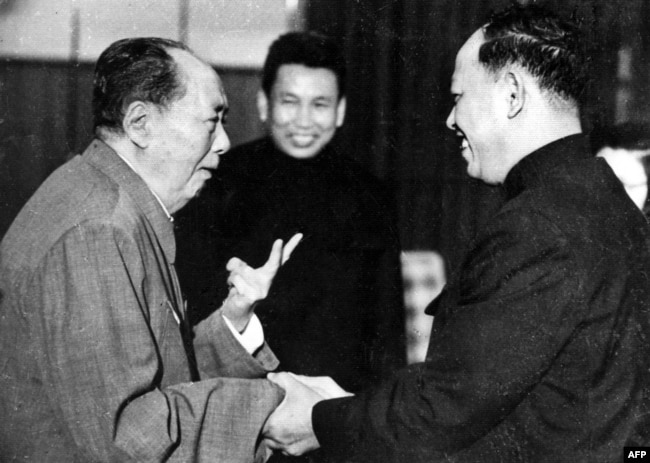
War of words
Chheang Vannarith, president of the Asian Vision Institute (AVI), an independent think tank based in Phnom Penh, said the current war of words is another indication that the U.S.-China competition in Cambodia will continue to intensify.
“I think Cambodia has become the proxy of U.S.-China geopolitical rivalry,” he said in an email. “The winner writes history. It is … real politics.”
Meas Nee, a political analyst who holds a doctorate in sociology and international social work from La Trobe University in Melbourne, Australia, said Cambodia should be cautious of falling into a trap if a new Cold War emerges.
“Those two superpowers can take advantage” of a vulnerable country like Cambodia, he said, adding that Phnom Penh’s closeness with Beijing makes it unlikely to take a stand. China is Cambodia’s largest aid donor.
Although many consider the U.S. involvement to be a matter of historical record, Emily Zeeberg, U.S. Embassy spokeswoman, told VOA Khmer that there was “no evidence that the United States was involved in the coup that brought Lon Nol to power.”
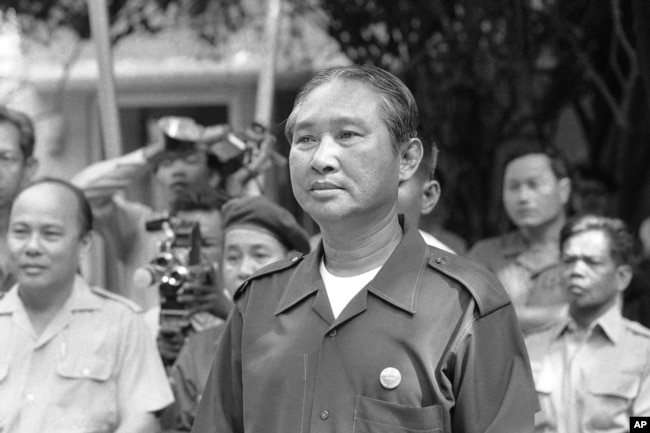
“The United States has addressed its war legacy by long-standing and substantial efforts for humanitarian demining and removing unexploded ordnance (UXO), including the removal of hundreds of thousands of Chinese-made mines, which have injured and killed people for decades,” she said in an email.
“We hope the Chinese government will acknowledge its legacy in Cambodia and make amends to all the Cambodians its policies affected,” Zeeberg added.
Repeated efforts to reach the Chinese Embassy in Cambodia were unsuccessful.
Phay Siphan, a Cambodian government spokesman, could not be reached for comment.
Cambodia’s Ministry of National Defense said in a statement issued last week that Cambodia had suffered from a civil war that arose from “a coup supported by United States in 1970.”
“Cambodia doesn’t want to see the same history, as Cambodia has full peace,” it read.
‘Supporting the Khmer Rouge’
Sophal Ear, associate professor of diplomacy and world affairs at Occidental College at Los Angeles, said: “It looks like the U.S. Embassy simply reminded Cambodia of who was supporting the Khmer Rouge at their height of power-1975-1979.”
“Indeed, with the withdrawal of the U.S., the Khmer Republic collapsed,” he added.
Continue reading
